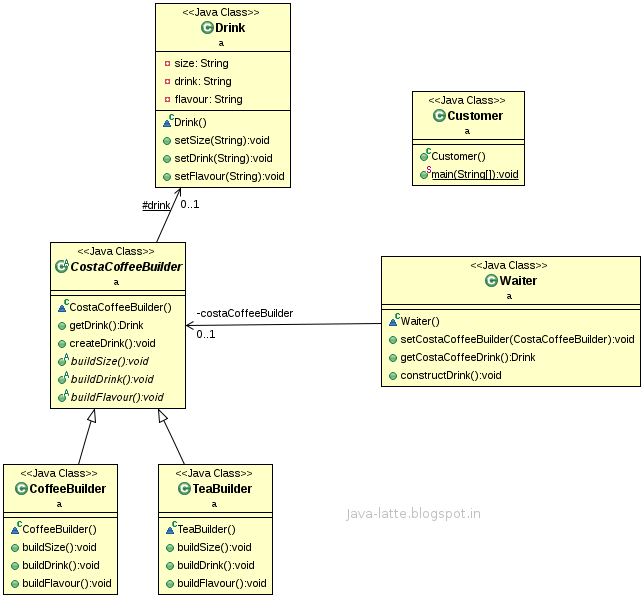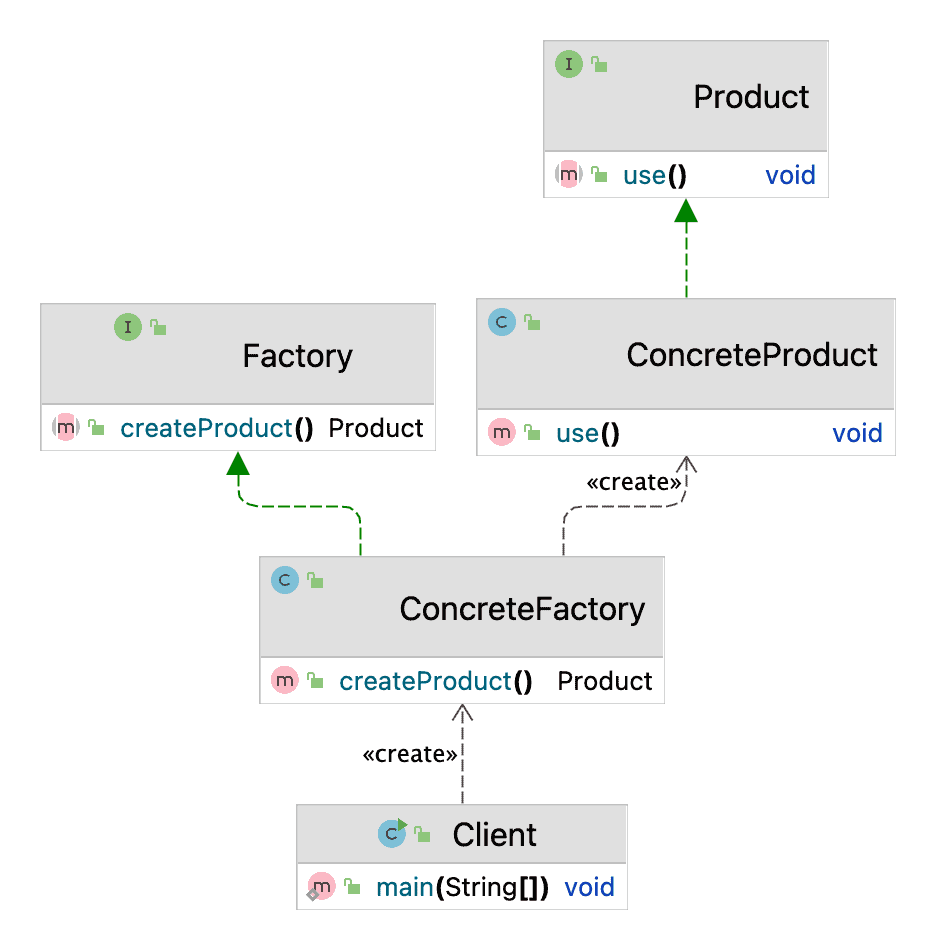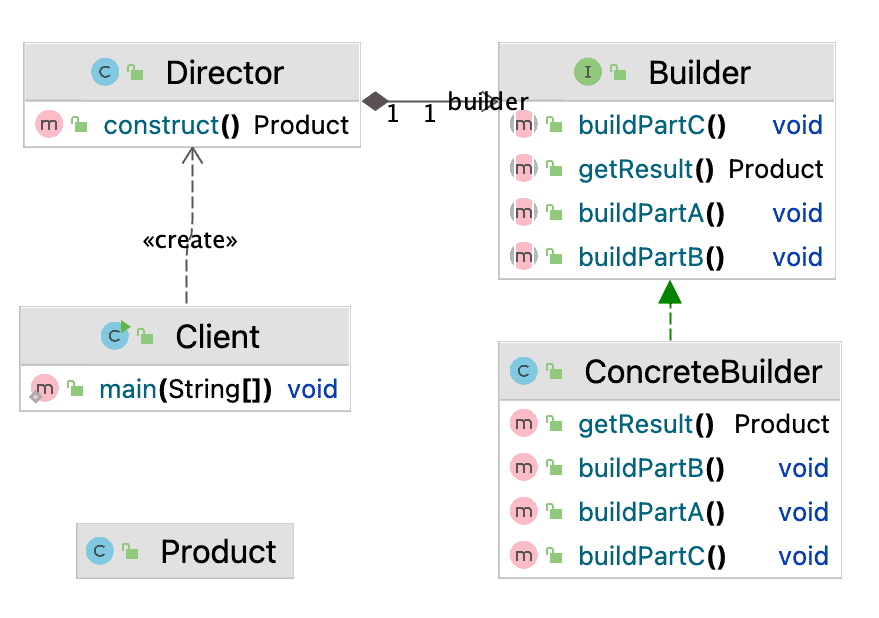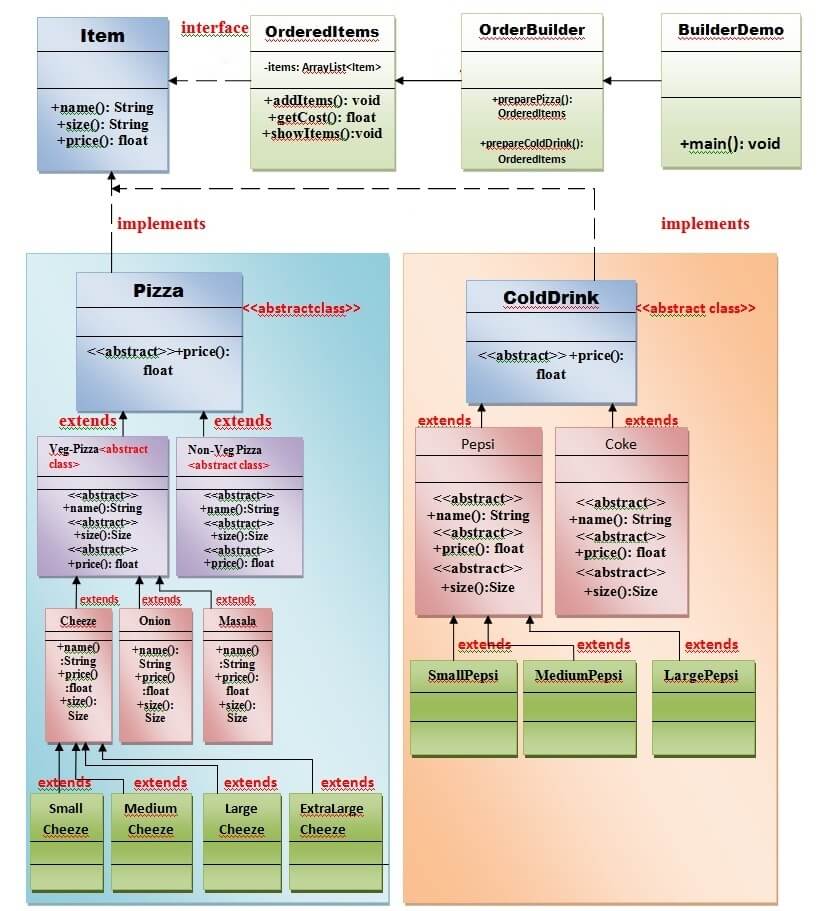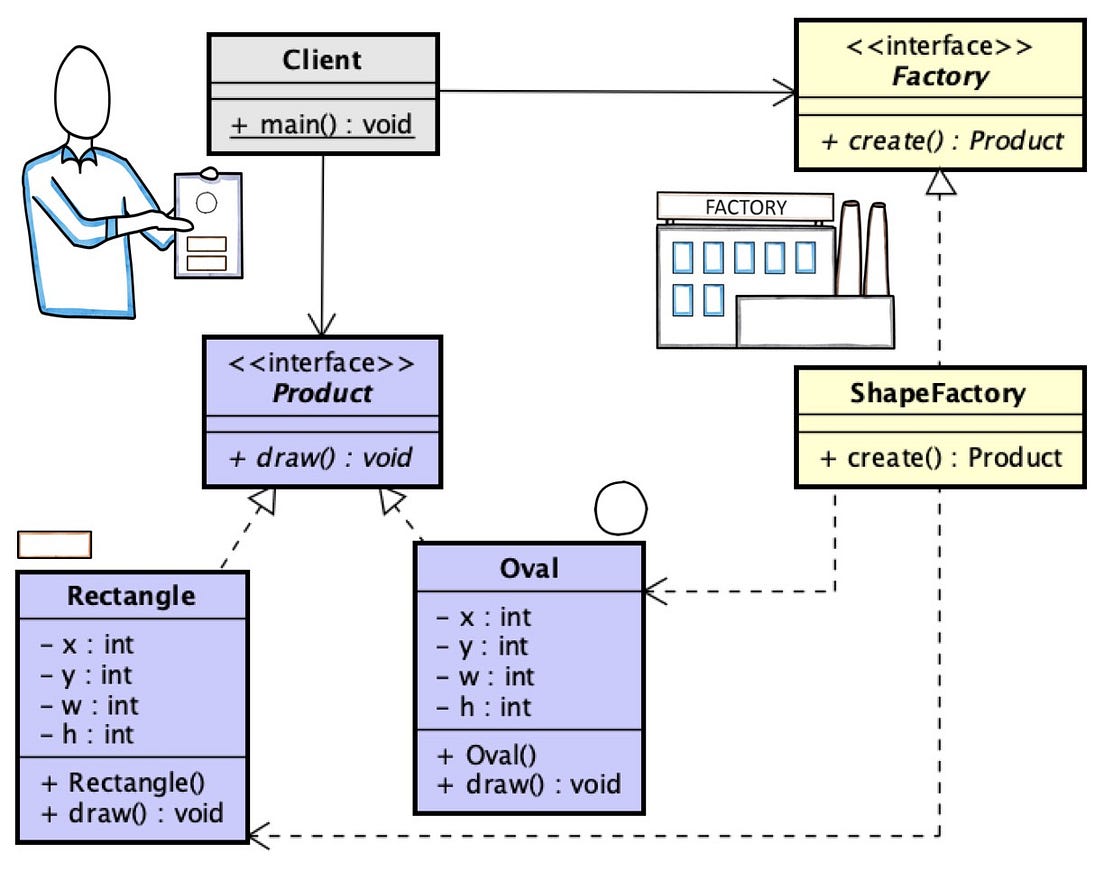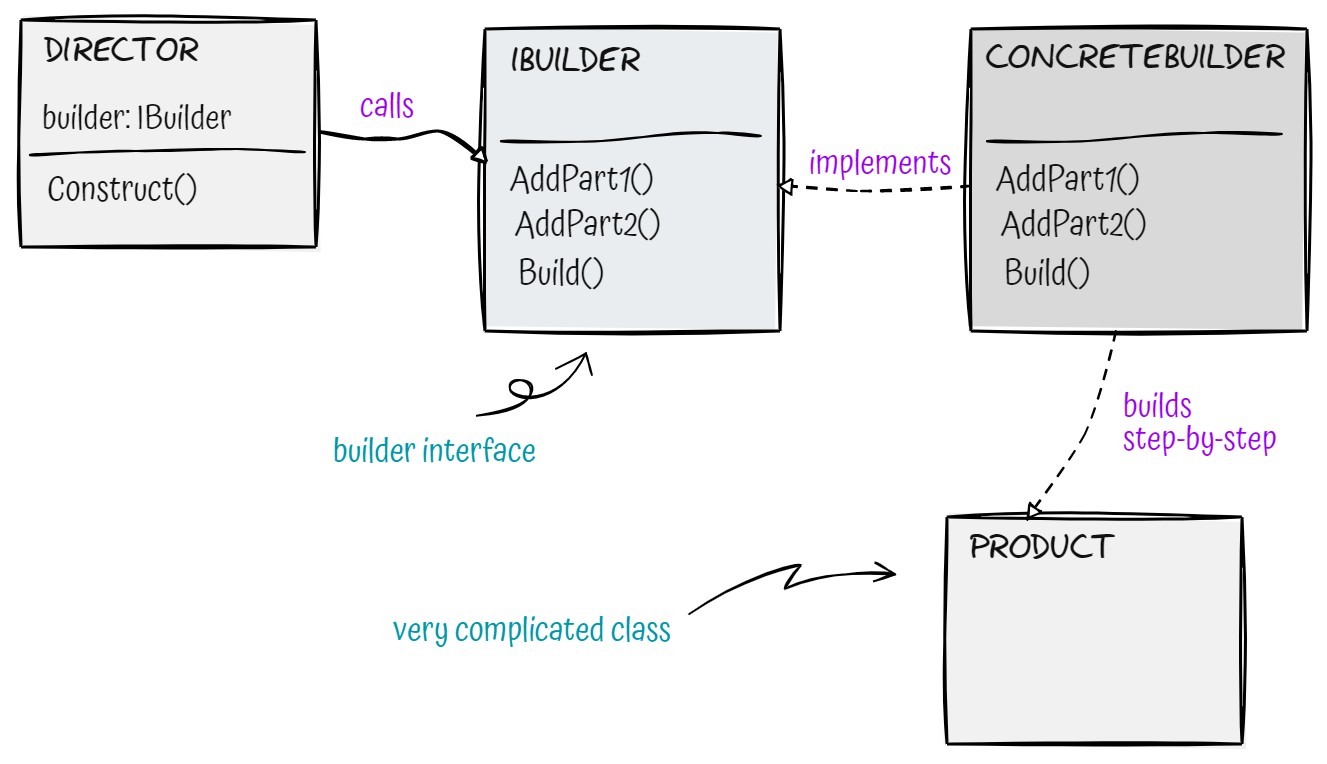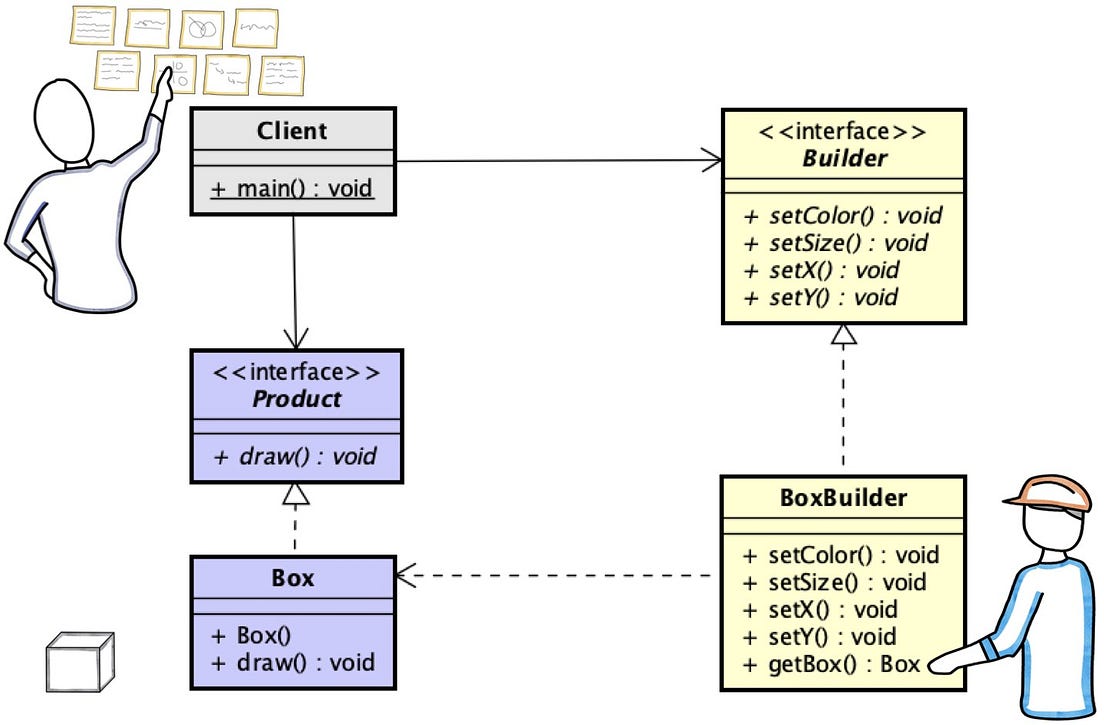As a developer, the eternal dilemma of whether to employ the factory pattern or the builder pattern often looms large when faced with object creation. Web the factory pattern simplifies the creation process by delegating it to subclasses, which determine the type of object to be created. If (this) { create this kind of object } else { that kind of. Methods for creating domain objects should delegate to a specialized factory object such that alternative implementations may be easily interchanged. Web i wish to ask another question regarding builder or factory pattern.
In contrast, the factory pattern creates objects without specifying their exact class. Web the builder pattern constructs complex objects step by step. As a developer, the eternal dilemma of whether to employ the factory pattern or the builder pattern often looms large when faced with object creation. The key difference is how the object is. Java has three types of design patterns:
(i read that builder is more complex than factory, and i may not need to use builder for now). Web the factory pattern simplifies the creation process by delegating it to subclasses, which determine the type of object to be created. In this case you'd expect a complex. In this tutorial, we’ll learn and highlight the main differences between the builder and the factory patterns. Web choose the factory pattern for simplicity and a common interface, while the builder pattern excels in handling complex constructions with elegance.
(i read that builder is more complex than factory, and i may not need to use builder for now). Additionally, they have several “flavors” that. Web the builder pattern is more about building complex objects that may or may not be (but probably are) of a known type. If (this) { create this kind of object } else { that kind of. Web i wish to ask another question regarding builder or factory pattern. In this tutorial, we’ll learn and highlight the main differences between the builder and the factory patterns. In this case you'd expect a complex. Web choose the factory pattern for simplicity and a common interface, while the builder pattern excels in handling complex constructions with elegance. Web formally, a builder pattern encapsulates or hides the process of building a complex object and separates the representation of the object and its construction. Java has three types of design patterns: However, the builder pattern is concerned with how. Methods for creating domain objects should delegate to a specialized factory object such that alternative implementations may be easily interchanged. In software engineering, a design pattern describes an established solution to the most commonly encountered problems in software design. Web the factory pattern simplifies the creation process by delegating it to subclasses, which determine the type of object to be created. These two particular patterns create significant confusion as they have similar intentions and often work together, making it more difficult to see their major differences.
Web The Builder And Abstract Factory Patterns Are Similar In That They Both Look At Construction At An Abstract Level.
These two particular patterns create significant confusion as they have similar intentions and often work together, making it more difficult to see their major differences. Web this pattern is often compared with “factory” method pattern because factory method is also an object creational dp. Web the builder pattern constructs complex objects step by step. Web the factory pattern simplifies the creation process by delegating it to subclasses, which determine the type of object to be created.
Web Choose The Factory Pattern For Simplicity And A Common Interface, While The Builder Pattern Excels In Handling Complex Constructions With Elegance.
In contrast, the factory pattern creates objects without specifying their exact class. If (this) { create this kind of object } else { that kind of. The key difference is how the object is. Web i wish to ask another question regarding builder or factory pattern.
Web A Factory Pattern Creates Objects Based On Input Criteria, Thus Ensuring That You Dont Need To Write Code Like:
Web the builder pattern is more about building complex objects that may or may not be (but probably are) of a known type. (i read that builder is more complex than factory, and i may not need to use builder for now). Java has three types of design patterns: Additionally, they have several “flavors” that.
As A Developer, The Eternal Dilemma Of Whether To Employ The Factory Pattern Or The Builder Pattern Often Looms Large When Faced With Object Creation.
However, the builder pattern is concerned with how. In software engineering, a design pattern describes an established solution to the most commonly encountered problems in software design. In this tutorial, we’ll learn and highlight the main differences between the builder and the factory patterns. Web formally, a builder pattern encapsulates or hides the process of building a complex object and separates the representation of the object and its construction.
